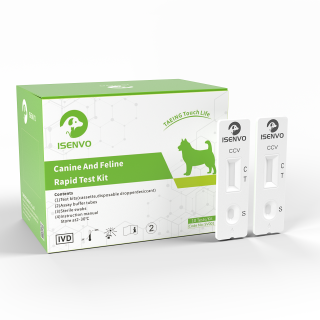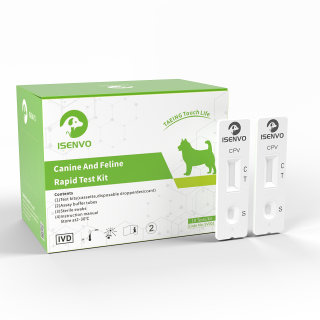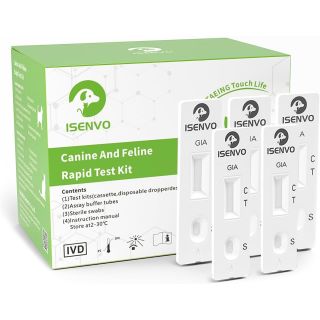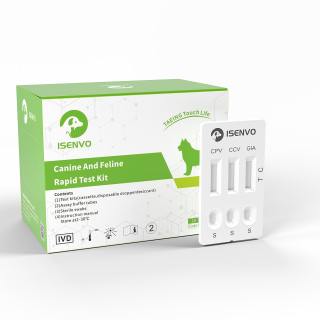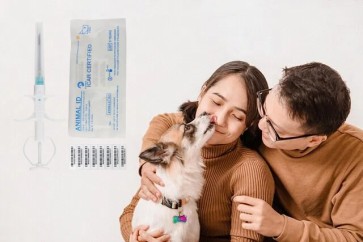Canine coronavirus (CCV) is a highly contagious intestinal disease that primarily affects dogs, especially puppies and immunocompromised pets. As a responsible dog owner, it's crucial to recognize the symptoms early and take appropriate action.
Recognizing CCV Symptoms
Common clinical signs include:
-
Watery or bloody diarrhea
-
Vomiting
-
Loss of appetite
-
Lethargy and weakness
-
Dehydration (check for dry gums and poor skin elasticity)
-
Mild fever
While most cases are mild, co-infection with other viruses like parvovirus can lead to severe complications.
Diagnosis: The First Critical Step
Early detection is key to effective treatment. The ISENVO CCV Ag Rapid Test Kit provides a convenient solution for quick screening.
Why Choose ISENVO CCV Ag Test Kit?
✅ Rapid results - Get answers in just 10-15 minutes
✅ User-friendly - No special equipment required
✅ High accuracy - Reliable detection of CCV antigens
✅ Versatile use - Suitable for both home and clinical settings
Simple Testing Procedure
-
Collect fresh fecal sample
-
Mix with provided buffer solution
-
Apply to test device
-
Read results within 15 minutes
A positive result indicates CCV infection and warrants immediate veterinary consultation.
Treatment and Supportive Care
While there's no specific antiviral treatment for CCV, these measures can help your dog recover:
-
Fluid therapy - Prevent dehydration with electrolyte solutions
-
Diet management - Offer bland, easily digestible food
-
Medication - Your vet may prescribe antiemetics or antibiotics
-
Isolation - Prevent spread to other pets
Prevention Strategies
Reduce infection risk through:
✔ Vaccination (some combination vaccines include CCV protection)
✔ Hygiene maintenance - Regular disinfection of bowls and living areas
✔ Avoiding high-risk environments - Be cautious at kennels and dog parks
When to See a Vet
Seek professional help if:
-
Symptoms persist beyond 24 hours
-
Your dog shows signs of severe dehydration
-
There's blood in vomit or diarrhea
-
Your puppy is affected (higher risk group)
Remember: While the ISENVO test provides quick screening, always consult your veterinarian for definitive diagnosis and treatment planning.
Has your dog ever experienced CCV? Share your story in the comments below!
Disclaimer: This content is for informational purposes only and should not replace professional veterinary advice. Always consult your vet for pet health concerns.




